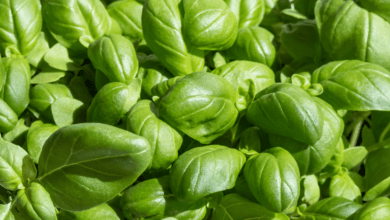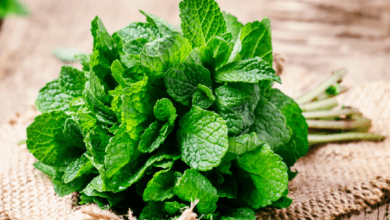
Introduction to Durian
Native to countries such as Malaysia, Indonesia, and Thailand, durian is a fruit that has been revered and enjoyed for centuries. Its large size and thorny husk make it easily recognizable. However, it is the pungent smell that truly sets it apart. Some describe the aroma as a combination of rotten onions and sweet custard, while others find it unbearable. Despite the strong odor, durian has gained popularity for its unique taste and impressive nutritional profile.
Nutrition Profile of Durian
Durian is a nutritional powerhouse, packed with essential vitamins, minerals, and beneficial compounds. It is an excellent source of vitamin C, providing more than 80% of the recommended daily intake in a single serving. Additionally, durian is rich in B vitamins, including thiamin, riboflavin, and niacin, which are essential for energy production and overall well-being. The fruit also contains significant amounts of potassium, magnesium, and dietary fiber, all of which contribute to a healthy diet.
Health Benefits of Durian
Durian and its Impact on Digestion
One of the notable health benefits of durian is its positive impact on digestion. This fruit is naturally rich in dietary fiber, which plays a crucial role in maintaining a healthy digestive system. Fiber adds bulk to the stool, promoting regular bowel movements and preventing constipation. Moreover, it acts as a prebiotic, nourishing beneficial gut bacteria and supporting a healthy gut microbiome. By including durian in your diet, you can improve your digestive health and maintain optimal gut function.
Also read: The Incredible Health Benefits of Broccoli: A Nutrient Powerhouse
Durian as a Source of Antioxidants
Durian is an abundant source of antioxidants, which are compounds that help protect our cells from damage caused by harmful free radicals. These free radicals are unstable molecules that can contribute to chronic diseases and accelerate aging. The antioxidants found in durian, such as vitamin C and various phenolic compounds, help neutralize these harmful molecules and reduce the risk of oxidative stress. By incorporating durian into your diet, you can boost your antioxidant intake and support overall health.
Durian and its Potential Anti-inflammatory Properties
Chronic inflammation is at the root of many diseases, including heart disease, diabetes, and certain types of cancer. Durian contains natural compounds with potential anti-inflammatory properties, such as polyphenols and flavonoids. These compounds have been shown to inhibit inflammatory pathways in the body, reducing the production of pro-inflammatory molecules. By consuming durian as part of an anti-inflammatory diet, you may help lower your risk of chronic diseases and promote overall well-being.
Durian and its Role in Supporting Cardiovascular Health
Maintaining a healthy heart is essential for overall well-being, and durian can play a role in supporting cardiovascular health. This fruit is a good source of potassium, a mineral that helps regulate blood pressure and maintain proper heart function. Potassium works in conjunction with sodium to balance fluid levels in the body, which is crucial for maintaining healthy blood pressure. By incorporating durian into a well-balanced diet, you can contribute to a healthy cardiovascular system.
Durian and its Effect on Blood Sugar Levels
Despite its sweet taste, durian has a low glycemic index, meaning it does not cause a rapid spike in blood sugar levels. This is due to the presence of dietary fiber and beneficial compounds that slow down the absorption of sugars into the bloodstream. For individuals with diabetes or those looking to manage their blood sugar levels, durian can be a suitable fruit choice. However, it is important to monitor portion sizes and consume durian in moderation as part of an overall balanced diet.
Also read: Exploring the Remarkable Benefits of Cabbage
Durian and its Impact on Skin Health
The nutrients found in durian, such as vitamin C and antioxidants, can also contribute to healthy skin. Vitamin C plays a crucial role in collagen synthesis, a protein that helps maintain the structure and elasticity of the skin. Additionally, antioxidants help protect the skin from damage caused by environmental factors, such as UV radiation and pollution. Including durian in your diet may promote a youthful complexion and support overall skin health.
How to Incorporate Durian into Your Diet

If you’re intrigued by the health benefits of durian, you may be wondering how to incorporate it into your diet. One popular way to enjoy durian is by consuming it fresh, scooping out the creamy flesh and discarding the seeds. Durian can also be used in various culinary creations, such as smoothies, desserts, and even savory dishes. Experiment with different recipes to find a preparation method that suits your taste preferences. However, it is important to note that durian is a calorie-dense fruit, so portion control is key to maintaining a healthy diet.
Precautions and Considerations When Consuming Durian
While durian offers numerous health benefits, there are some precautions and considerations to keep in mind. Firstly, the strong odor of durian may not be appealing to everyone, and some individuals may have an allergic reaction to the fruit. If you are allergic to sulfur compounds, such as those found in onions and garlic, you may also be allergic to durian. Additionally, durian is a high-calorie fruit, so it should be consumed in moderation as part of a well-balanced diet. Lastly, be cautious when purchasing durian as it is often sold ripe, and overripe fruit may have fermented, leading to an unpleasant taste and potential digestive issues.
Conclusion
Durian, the king of fruits, offers a multitude of health benefits that make it worthy of exploration. From supporting digestion to promoting cardiovascular health and benefiting skin health, the nutritional profile of durian is impressive. While the strong odor may be off-putting to some, the unique flavor and potential impact on well-being make it worth a try. Whether enjoyed fresh or incorporated into various dishes, durian can be a delightful addition to a healthy diet. So, next time you come across this exotic fruit, embrace the opportunity to unravel its health benefits and savor the taste of durian.
Incorporate the king of fruits into your diet and experience the health benefits of durian today! Try adding fresh durian to your favorite smoothie recipe or indulge in a durian-infused dessert. Let this exotic delicacy take your taste buds on a journey while nourishing your body with its nutritional goodness.






